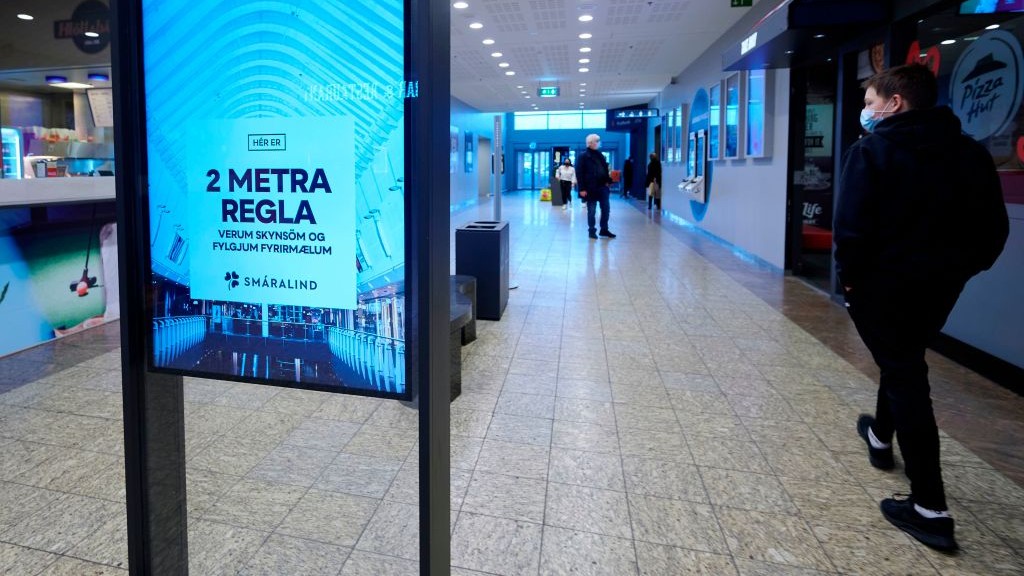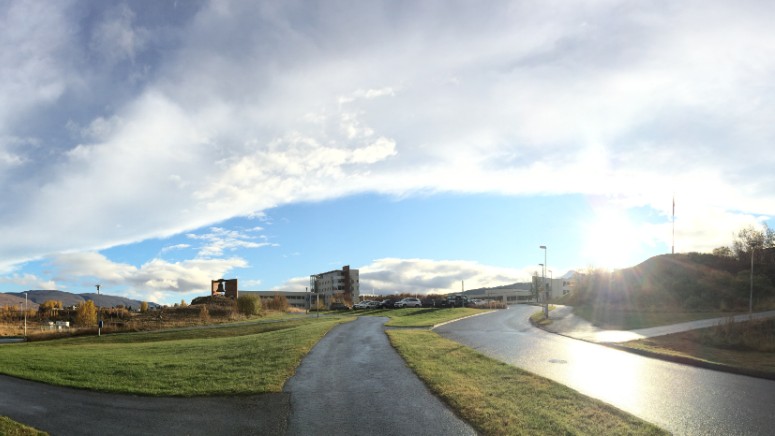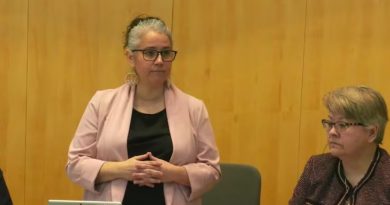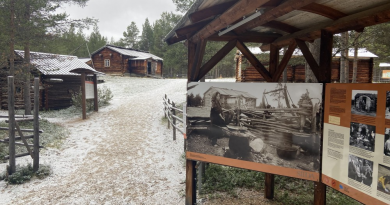UK variant cases prompt Iceland to tighten up border measures and domestic restrictions

Iceland is putting new COVID-19 rules in place at the border after Iceland’s chief epidemiologist says new COVID-19 domestic waves were most likely caused by infections brought from abroad.
Iceland requires adult travellers to have a PCR test upon arrival in Iceland, followed by a second PCR test five days later.
Children, previously excluded from border screening measures, will now be required to undergo a PCR test at the border as well.
PCR tests involve taking swabs from the nose and throat.
The new measure will apply to all children born in 2005 or later who are arriving from a so-called “dark red” or “grey” areas defined by the European Centre for Disease Prevention and Control.
Dark red areas refer to places were the 14-day incidence rate of COVID 19 exceeds 500 cases per 100,000 people. Grey areas refer to places where sufficient data is unavailable.
The second change will see all travellers from dark red areas required to quarantine for five days after arrival until they receive their second test.

“The Chief Epidemiologist, expresses worry that cases are being detected in second screening of individuals who have provided a negative PCR test prior to departures and have tested negative at the border,” the government said in a news release on Tuesday.
“He speculates that this is most likely due to the high prevalence of the disease at the point of departure, and further, that the most likely source of new domestic wave stems from imported cases.”
The new measures will come into effect on April 1 and expire at the end of that month.
Domestic restrictions put in place
Iceland also announced gatherings would now be limited to 10 people as of midnight on March 24. Schools for children 6 to 19, music schools and universities will also be closed until the Easter holidays.

As of Wednesday, Iceland was reporting 7.6 domestic infections per 100,000 people, and 12.5 cases per 100,000 people at the border.
Iceland sequences every COVID-19 case in the country and has identified the UK variant as being involved in recent infection clusters.
“All the new group infections that have broken out in Iceland involve the ‘British’ strain of the corona virus, which is far more readily transmitted than most other variants and causes rather more serious illness,” said a statement on Iceland’s COVID-19 website on Wednesday.
“In the light of the fact that the British strain has been shown to have more serious implications for older children, the Chief Epidemiologist urged that the restrictions apply to children as young as six years old.”
Limits on group gatherings are expected to be in place for three weeks.
Write to Eilís Quinn at eilis.quinn(at)cbc.ca
Related stories from around the North:
Canada: Arctic Tourism & the Pandemic podcast, Eye on the Arctic
Finland: Traffic, mobile data show Lapland travellers not deterred by worsening COVID situation in Finland, Yle News
Denmark/Greenland: Greenland authorities buoyed by high demand for COVID-19 vaccine, Eye on the Arctic
Iceland: Iceland opens borders for vaccinated visitors to boost tourism, Thomson Reuters
Norway: Norway extends border closure with Finland due to pandemic, The Independent Barents Observer
Russia: Norway closes borders over fears of virus, but exempts Russian fishermen from severely infected border region, The Independent Barents Observer
Sweden: COVID-19 strategy darkens Sweden’s image in the Nordics, Radio Sweden
United States: Alaska politicians send Trudeau letter saying they’re “shocked” over Canada’s COVID-19 cruise ship ban, Eye on the Arctic



